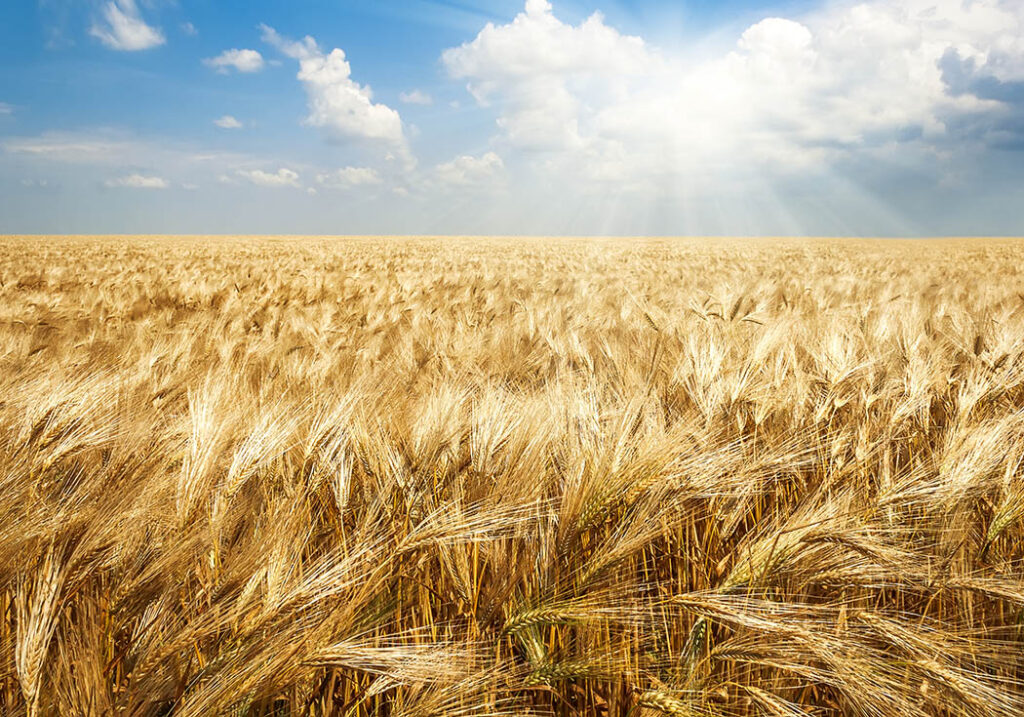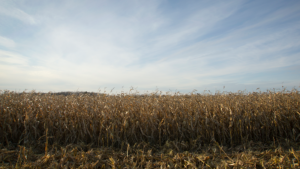Bill C-234
SENATE REVIEWs GRAIN DRYING BILL


THE MULTI-PARTY support for Bill C-234, passed last March in the House of Commons, was a testament to all of the hard work that has raised awareness about the need to exempt grain drying from the carbon tax: the bill was supported by the Conservative, NDP, and Bloc Quebecois caucuses, Elizabeth May from the Green party, and a couple of rural Liberal MPs.
When passed, Bill C-234, the private member’s bill, An Act to amend the Greenhouse Gas Pollution Pricing Act, sponsored by Huron-Bruce MP Ben Lobb, will extend the exemption of the federal pollution price (carbon tax) on natural gas and propane for on-farm use to include grain dryers and barn heating.
The victory in the House of Commons was only one step in the process for Bill C-234 to become law; the bill now must pass through the Senate with a majority vote and achieve Royal Assent.
GRAIN DRYING EXEMPTION SOUGHT
An exemption for grain farming from the carbon tax is a priority for Grain Farmers of Ontario.
And all hands are on deck to see Bill C-234 become law. On-farm fuel used to power trucks and tractors is already exempt from the government’s carbon tax legislation. Farm groups from across Canada have been united in their effort to include grain drying on the exemption list. Work towards achieving an exemption has taken place over the last five years.
“When innovative ways to dry grain are developed, I can guarantee farmers will be quick to adopt them,” wrote Brendan Byrne, chair of Grain Farmers of Ontario, in a letter to senators. “Farm fuels are a major cost, and all farmers want to manage costs. But until alternative solutions are available, taxing the fuels used for grain drying only penalizes farmers and unnecessarily increases the cost of food production.”
In 2021, when a federal rebate was set to reimburse farmers for costs associated with on-farm natural gas and propane, the Government of Canada formally acknowledged that there are no substitutes for grain drying ready in the marketplace and that farmers rely on natural gas and propane. This acknowledgement was welcomed, but the fact that the rebate only covered a small portion of what was paid by a grain farmer on carbon tax was not.
The carbon price is set to increase yearly until it hits $170 a tonne in 2030 — costing the Ontario grain farmer $35 – 46 an acre for the carbon tax on top of the fuel price. If the finance minister provides a rebate at a similar rate in the future, grain farmers will get less than 20 per cent of the carbon tax they paid from the federal tax rebate.
OFF TO THE SENATE
Following standard parliamentary procedure, the Senate must vote on the bill before it becomes law. At the time of writing, the Agriculture and Forestry Committee was studying the bill, which is a priority for Senator Rob Black of Ontario, chair of the committee.
“At the committee stage, the bill is examined in detail,” says Black. “The committee hears from witnesses about the bills, the pros and the cons.”
“Farming is a profession full of uncertainties — whether it’s unpredictable weather patterns or fluctuating market prices,” said Senator David Wells, sponsor of the bill, at a September 21 committee hearing. “[The carbon tax] places a disproportionate burden on our farmers, our ranchers, and our growers. Without commercially or industrially viable energy alternatives, they face a dual dilemma. On one side, they are committed to sustainable practices, and on the other, they are financially penalized for using the only tools currently available to them.”
Almost 25 witnesses presented to senators on the bill at committee, some in favour of the bill and some against it, as well as several witnesses from different departments within the government. Two expert witnesses on grain drying testified on the last day of committee hearings.
“To my knowledge, and we reviewed most of the drying systems, at least in North America or Europe, I don’t think we are going to see anything new, disruptive or totally different that offers some magic numbers in terms of energy efficiency of the drying or the costs…” said Dr. Chandra B. Singh, senior research chair in agricultural engineering and technology at Lethbridge College. “I don’t expect that there will be something new in the short term.”
Grain Farmers of Ontario has met with many people in government and the Senate leading up to this time, providing a detailed submission of facts on why the bill is important to Ontario grain farmers and Canadians concerned about food affordability.
“We haven’t met with a senator yet who hasn’t watched Grain Farmers of Ontario’s video on grain drying. This video has been a great tool for those senators who can’t make it out to the farm in person,” says Byrne. “Every time we meet with a senator or politician, it is really important to have our partners at our side from the Atlantic Grains Council and the Quebec Grain farmers.”
THE ROLE OF THE SECOND CHAMBER
Black feels that senators are well-equipped to ask thoughtful and investigative questions to help them decide on the bill.
In the modern Senate, the prime minister nominates senators based on recommendations from an arms-length advisory board. This results in senators aligning with one of four groups: the Independent Senators group, the Canadian Senators group, the Progressive Senators group, or the Conservatives. A small subset of senators aligns with no group.
“In the old days, whatever happened in the House likely happened in the Senate,” says Black. “In this new world of the Senate of Canada, senators are more apt to ask tougher questions of the government and push back and make changes. But we can’t do that if we don’t know the issue well.”
Black says engagement and advocacy efforts by organizations like Grain Farmers of Ontario are critical. Grain Farmers of Ontario will continue to meet with senators and get the message out that an exemption on the carbon tax fuel used to dry grain is necessary because there are no alternatives for farmers to use to dry their grain.
Debra Conlon is the director of government relations at Grain Farmers of Ontario.
To view the video visit https://youtu.be/G3ABuZ7dxTw. •

























